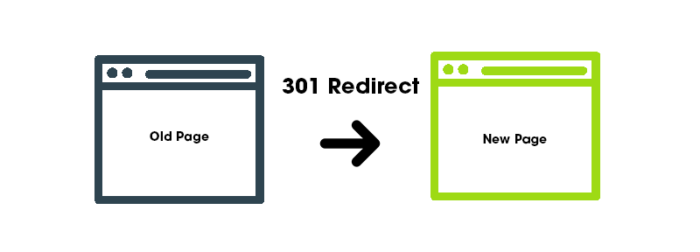If you run a website and want to take your SEO to the next level, this blog article is for you. The article talks about 301 redirects and canonicalization in a way that will not only help you understand what these terms mean but also how to implement them on your site.
What is Canonicalization?
301 redirect is a technique used to direct traffic from one URL to another URL that is considered the canonical version of that page. This helps to improve the visibility and rankings of the original page by directing users who land on it to the most authoritative version.
Canonicalization is also used as a way of marking pages as official or authorised versions of a site and helping search engines determine the most appropriate link for displaying results in their search engine results pages (SERPs).
How could canonical URLs hurt your search engine rankings?
301 redirects and canonical URLs can hurt your search engine rankings if they are not implemented correctly. 301 redirects are used to permanently move a page from one URL to another, while canonical are the official, permanent URLs for a given piece of content. If you don’t properly canonicalize your URLs, search engines can mistakenly think the pages you’re redirecting or canonising are the original pages affected by the 301. This can lead to a loss of ranking position. When you engage with reputed seo company Brisbane help with 301 redirects and canonicalization.

How would redirect options benefit your SEO strategy?
Redirects are a great way to make sure your website is ranking well. By redirecting visitors from one page on your website to another, you can ensure that your site appears as the most relevant and authoritative resource for the topic being discussed.
When someone clicks on a link that takes them to a page other than the home page, a 301 redirect can automatically set up a new page at the URL specified in the redirection record.
This ensures that all the links on that page lead back to your homepage. Finally, canonicalization is a tool that Google uses to determine which pages should be listed first when someone searches for a particular topic.
By default, all pages on your website are considered equal – no page enjoys preferential treatment. However, by setting up canonical links (links from one specific version of a page to its “canonical” version), you can give one version of a page an advantage over others when people are searching for information about this topic. These measures can help improve your site’s ranking in search engine results pages (SERPs).
DIY or seeking help from a professional?
There is no easy answer when it comes to SEO best practices. On the one hand, DIY can be fun and rewarding – after all, you get to control your own website. Plus, there is something satisfying about seeing your hard work pay off. However, if you want your website to be as successful as possible, it is important to enlist the help of a professional SEO Company Brisbane wide. They will also be able to provide you with helpful advice and guidance on how to improve your online presence.

